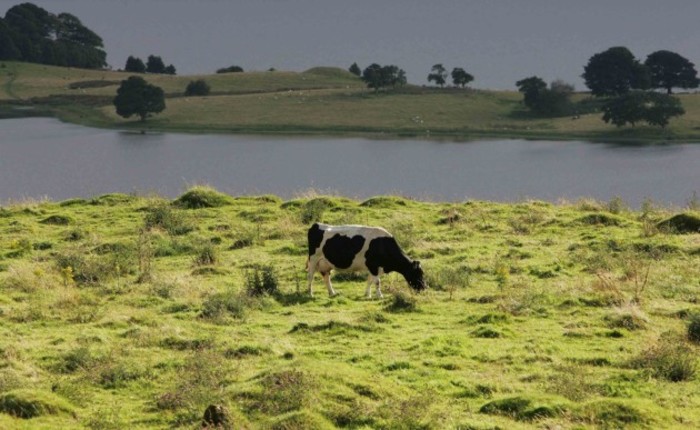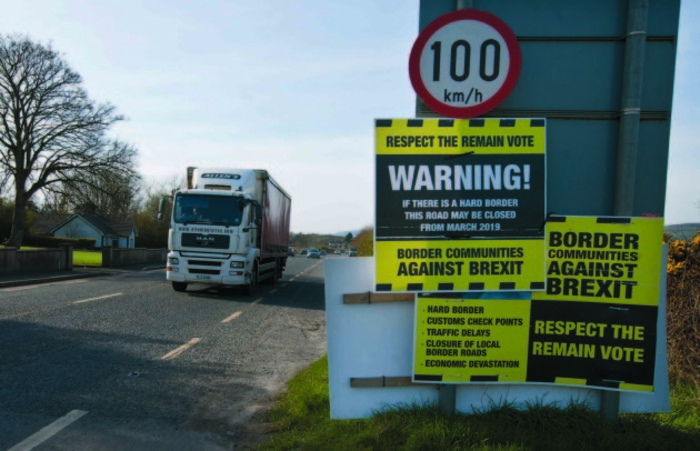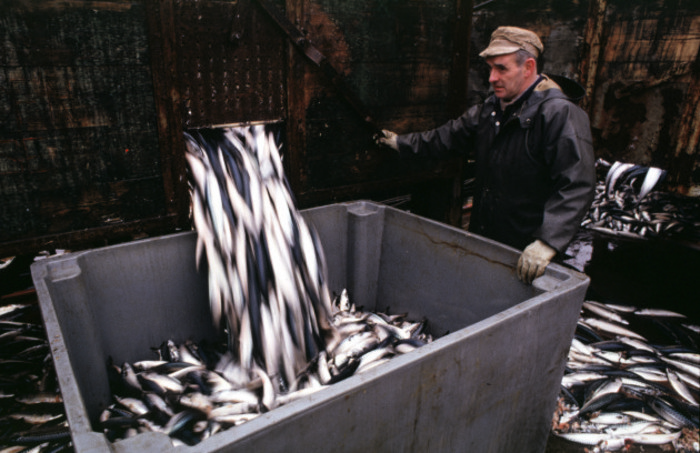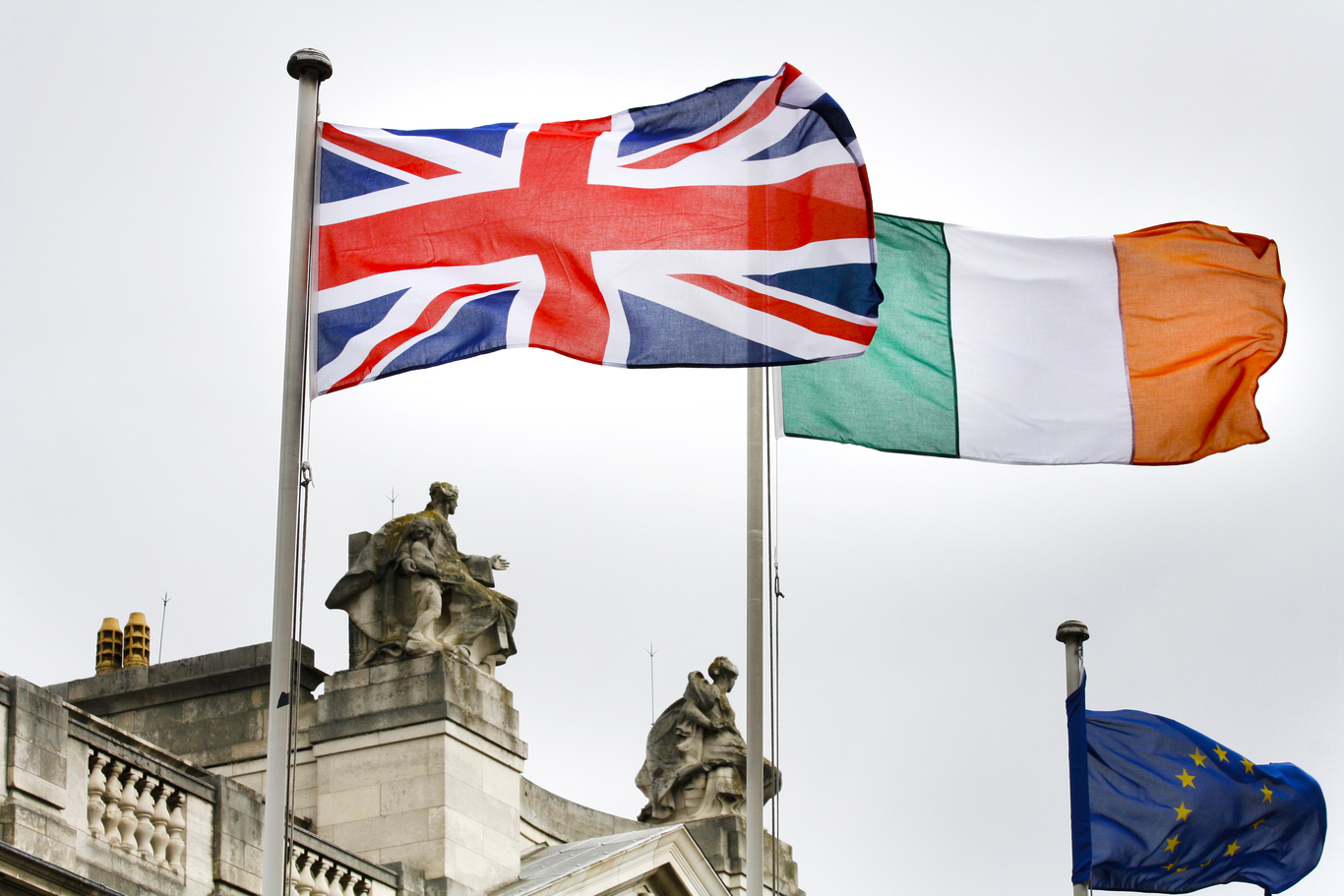What Irish businesses need to know about the Brexit transition deal
The draft agreement includes a ‘backstop’ to prevent a hard border with the North.
AFTER MONTHS OF wrangling, the EU and UK have agreed a draft Brexit deal that would give Ireland a guaranteed ‘backstop’ to prevent a hard border with the North.
While the agreement – including a ‘transition period’ to the end of 2020 – has been welcomed by businesses as giving them greater certainty to continue going about their trade, there remain a number of stumbling blocks that could prevent a final deal being struck.
These are the main points that Irish businesses need to know about today’s announcement:
The transition period
While the date of the UK’s exit from the EU – March 29 next year – has long been known, the length of any ‘transition period’ to allow both parties to adjust to a Britain-free union has been a point of contention.
Today it was officially announced that the transition period, during which the UK will maintain access to the single market and customs union while forfeiting the right to participate in EU decision-making, will last for 21 months, to end on 31 December, 2020.
During that period, the UK will be allowed to negotiate its own trade deals, however none of these will legally be able to be implemented until 2021.
The period is close to the two years the British government had been seeking, but it falls well short of the five-year period Irish politicians sought in order to resolve issue like the border and coming up with a trade agreement between the UK and the EU.
Ireland’s exporters, particularly in the agri-food sector, are particularly exposed to the fallout from a hard Brexit should tariffs and regulatory barriers be introduced.

The border and Northern Ireland
On the border, the UK agreed that a “backstop” pledge to avoid a hard border – involving customs checks between Northern Ireland and the Republic in the south - should be included in the Brexit treaty unless a better solution was found.
The backstop deal would essentially preserve the status quo, with the North maintaining the same trade regulations in areas like customs, agriculture and energy as the south and the EU in order to circumvent the need for border controls.
While the UK government has previously said that it wouldn’t undermine the Good Friday Agreement with a return to a hard border, it has been unable to square that position with its plan of taking all its territories out of the single market and customs union.
MPs last week warned that there was currently “no evidence” to suggest that one of the proposed solutions – an ‘invisible’ border facilitated by technology – was possible.
Irish business lobby group Ibec said a “comprehensive legal backstop” was an important measure in protecting the all-island economy and cross-border supply chains.
The agreement, however, appears to just kick the can down the road when it comes to finding a long-term answer to the border issue that would allow the UK maintain its stated goal of rejecting EU regulations while also keeping Northern Ireland within the British internal market.

Workers’ rights and fisheries
When it comes to workers’ and residents’ rights, the British government has climbed down from one of its previous pledges – that EU citizens arriving in the UK during the transition period would be treated differently to those already resident in the country.
Under the accepted terms of the draft agreement, both EU and UK citizens, and their families, who start living in either territory until the transition period runs out in 2020 will enjoy the full rights and privileges they enjoy under existing agreements.
The UK also backed down on one of its hardline stances, that it would ‘take back control” of its fisheries policy once the Brexit deadline passed next March.
The draft deal includes maintaining the EU’s common fisheries policy for the full transition period, meaning Irish fishing trawlers will continue to have access to lucrative UK waters.
That decision was immediately slammed by Scottish fishing campaigners, who said they had been “let down” by their government with the proposed agreement to continue existing EU fishing quotas.

What happens next?
While much of the legal text for the UK’s Brexit deal has now been agreed, there remains large sections of the documents either yet to be formally accepted or still in dispute.
For Ireland, the vital issue remains the border, where the EU has proposed a “common regulatory area” involving Northern Ireland and member states, including the Republic, in conflict with the UK position.
EU heads of government will meet later this week, when they may clear the way for negotiators to move to “phase-two discussions” that would focus on the future EU-UK trade relationship.
Nevertheless, the European Parliament’s Brexit steering group reiterated that “nothing is agreed until everything is agreed” on the final divorce agreement, with the way still open for both parties to still back out on some or all of the transition deal.






